Lenovo Updates Flagship Laptops as AI Workloads Reach the Edge
Quick Listen:
In an era where artificial intelligence is breaking free from the confines of massive data centers, the edge those laptops we tote in our backpacks or place on our desks is emerging as the new battleground for computing power. Imagine a doctor in a rural hospital running real-time AI diagnostics on a laptop, or an engineer tweaking complex simulations from a bustling airport lounge. This is the promise of edge computing, where AI tasks are handled directly on devices, slashing delays and opening new doors for innovation. Lenovo, a global leader in technology, is seizing this moment with a transformative update to its flagship laptops, engineered to meet the surging demands of AI where we live, work, and create.
Struggling with fragmented IT procurement that delays projects and spikes costs? Since 2003, Eye-In Technologies has streamlined tech sourcing with 10,000+ trusted products from Lenovo, Samsung, and more. Our intuitive platform and expert-curated solutions, like digital signage and WiFi, optimize workflows for enterprises. Source smarter, cut expenses, and boost efficiency with competitive pricing. Shop Now!
Lenovo's Bold Leap into AI-Driven Computing
At MWC 2025 in Barcelona, Lenovo introduced a lineup of AI-powered laptops that redefine what mobile devices can achieve. The Lenovo Yoga Pro 9i Aura Edition (16”, 10) stands out with its NVIDIA GeForce RTX GPU and a stunning PureSight Pro tandem OLED display, delivering creative power that rivals high-end workstations. Similarly, the Lenovo IdeaPad Slim 3x (15”, 10) blends robust AI functionality with expandable storage, offering exceptional value for professionals and creators. These aren't mere hardware refreshes; they embody Lenovo's vision of “Smarter Technology for All,” as articulated by Jun Ouyang, Senior Vice President and General Manager of Lenovo's Consumer Segment. Ouyang stressed that Lenovo is committed to democratizing AI access while pushing the limits of technological innovation.
This focus on edge AI aligns with a seismic shift in the U.S. tech landscape. Industry forecasts predict explosive growth in edge computing, with businesses increasingly turning to local devices for data processing. From healthcare to finance, sectors are harnessing AI to make split-second decisions without the lag of cloud systems. Lenovo's Yoga and IdeaPad laptops, equipped with features like Windows Studio Effects and Copilot+ AI PCs, are built for this new reality, enabling seamless task execution and content creation anywhere.
The Power of Edge Computing
Edge computing is a game-changer, not just a tech trend. By processing AI workloads directly on devices, it sidesteps the limitations of cloud-based systems, delivering near-instantaneous results. In healthcare, for instance, edge AI allows doctors to analyze medical imaging on laptops in real time, bypassing slow server connections. Retailers are using AI-driven laptops to optimize inventory and tailor customer experiences on the fly. Lenovo's latest offerings, such as the ThinkPad P14s Gen 6 AMD and P16s Gen 4 AMD mobile workstations, are designed for these intensive tasks. As Rob Herman, Vice President of Lenovo's Workstation and Client AI Business, put it, these devices provide “exceptional performance in a mobile form factor for compute-heavy, AI-driven applications.”
Lenovo's collaborations with Intel and AMD are pivotal to this evolution. Cutting-edge chipsets, like those in the ThinkPad X1 Aura Editions, empower laptops to tackle machine learning models and intricate simulations that once demanded dedicated servers. In the U.S., industries like automotive and logistics are adopting edge AI at a rapid clip, with market projections estimating double-digit growth by 2030. This shift enables faster decision-making and seamless operation in environments where internet connectivity is spotty or nonexistent.
Transforming Industries, One Laptop at a Time
Picture a U.S. healthcare startup deploying Lenovo's ThinkPad P series to power AI diagnostic tools in remote clinics. By processing patient data locally, doctors can deliver life-saving insights without waiting for cloud servers. In finance, analysts are using these laptops to run real-time risk models, responding to market fluctuations with unprecedented speed. Government R&D teams are also tapping into Lenovo's AI laptops to simulate everything from climate scenarios to urban infrastructure plans, all without relying on distant data centers.
The autonomy of edge AI is a key advantage. By handling data locally, Lenovo's laptops free remote and hybrid workforces from the tether of constant cloud connectivity. This is critical in the U.S., where hybrid work has become a cornerstone of modern business. A recent study suggests edge computing could save U.S. enterprises billions annually by cutting data transmission costs and boosting efficiency. Lenovo's devices, tailored to the needs of diverse professionals, are driving this transformation, enabling productivity in any setting.
Take manufacturing, for example. Factories are using AI laptops to monitor production lines in real time, catching defects before they escalate. In emergency services, first responders rely on these devices to analyze on-site data, from disaster response models to traffic flow predictions, enabling faster and smarter interventions. These real-world applications underscore how Lenovo's laptops are not just tools but catalysts for industry-wide change.
Overcoming the Hurdles
Yet, integrating AI-grade power into sleek laptops isn't without challenges. Power consumption is a significant barrier complex algorithms can drain batteries rapidly, and managing heat in slim designs is no small feat. Lenovo is addressing this with optimized hardware and software, but striking the right balance remains critical. Security is another pressing concern. Processing sensitive data on laptops rather than fortified cloud servers increases the risk of breaches. Lenovo counters this with robust features like biometric authentication and advanced encryption, but industries like healthcare and finance demand ironclad protections.
Compatibility poses another challenge. Many U.S. businesses rely on legacy IT systems that may not easily integrate with state-of-the-art AI laptops. Lenovo's ThinkPad L Series offers enhanced manageability to ease this transition, but for enterprises with entrenched infrastructure, the shift can be complex. Still, the rewards faster processing, reduced latency, and cost savings make these hurdles worth tackling.
Unlocking New Efficiencies
The benefits of edge AI are transformative. By enabling local AI processing, Lenovo's laptops are driving efficiencies across industries. In logistics, real-time route optimization powered by AI laptops reduces fuel costs and delivery times. In education, researchers use these devices to run simulations without the expense of cloud infrastructure. The cost savings are substantial by minimizing reliance on cloud systems, businesses can slash bandwidth and storage expenses, a critical advantage for budget-conscious organizations.
For the U.S.'s growing remote workforce, Lenovo's AI laptops are indispensable. With features like Copilot+ and NVIDIA GPUs, these devices support everything from video editing to advanced data analytics, all without a constant internet connection. This aligns perfectly with the U.S.'s embrace of flexible work models, where professionals demand tools that keep them productive anywhere. As one industry expert noted, “The edge is where the future of work is taking shape, and Lenovo is leading the charge with devices built for this new reality.”
Shaping the Future of Computing
Lenovo's latest laptops are more than cutting-edge hardware they're a blueprint for the future. Experts forecast that by 2030, most AI processing will occur at the edge, fundamentally reshaping industries from transportation to healthcare. Lenovo is already planning its next steps, deepening partnerships with tech giants like Intel and NVIDIA to push innovation further. As Jun Ouyang emphasized, “delivering access to AI for all is equally a core tenet of Lenovo's philosophy.”
Today, Lenovo's flagship laptops are paving the way for a world where AI empowers everyone whether it's a scientist in a lab, a financial analyst in a skyscraper, or a creator sketching the next big idea. The edge isn't just where computing happens; it's where progress begins, and Lenovo is at the forefront, building the tools that will define the next decade of innovation.
Frequently Asked Questions
What makes Lenovo's new AI laptops different from regular laptops?
Lenovo's latest AI laptops feature powerful NVIDIA GeForce RTX GPUs, advanced chipsets from Intel and AMD, and specialized AI capabilities like Windows Studio Effects and Copilot+ integration. These laptops can process complex AI workloads directly on the device without relying on cloud servers, enabling real-time AI diagnostics, machine learning models, and data analytics anywhere. The flagship models like the Yoga Pro 9i Aura Edition and ThinkPad P series are specifically designed for compute-heavy, AI-driven applications.
How does edge computing in laptops benefit businesses and professionals?
Edge computing in Lenovo's AI laptops delivers near-instantaneous results by processing data locally, eliminating the delays of cloud-based systems. This enables doctors to analyze medical imaging in real-time, financial analysts to run immediate risk models, and manufacturers to monitor production lines without internet connectivity. Businesses can save significantly on bandwidth and storage costs while maintaining productivity in remote locations or environments with poor connectivity.
What industries are using Lenovo's AI laptops for edge computing applications?
Healthcare professionals use these laptops for real-time AI diagnostics in rural hospitals and remote clinics, while financial analysts leverage them for instant market risk modeling. Manufacturing facilities deploy them for production line monitoring and defect detection, emergency services use them for disaster response analysis, and logistics companies optimize routes in real-time. Government R&D teams also utilize these devices for climate simulations and urban infrastructure planning without relying on distant data centers.
Disclaimer: The above helpful resources content contains personal opinions and experiences. The information provided is for general knowledge and does not constitute professional advice.
You may also be interested in: Top Digital Signage Trends for 2025: What Businesses Need to Know
Struggling with fragmented IT procurement that delays projects and spikes costs? Since 2003, Eye-In Technologies has streamlined tech sourcing with 10,000+ trusted products from Lenovo, Samsung, and more. Our intuitive platform and expert-curated solutions, like digital signage and WiFi, optimize workflows for enterprises. Source smarter, cut expenses, and boost efficiency with competitive pricing. Shop Now!
Powered by flareAI.co





